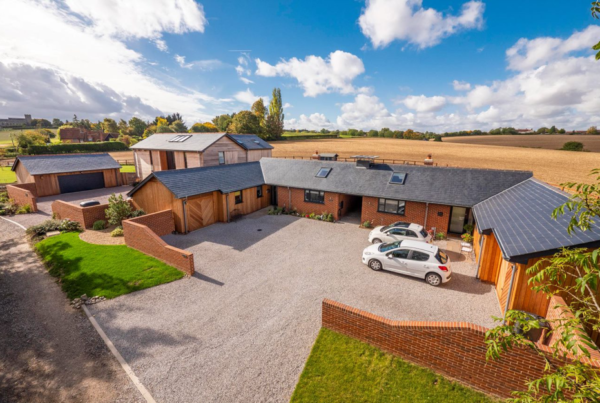Tips for being a good landlord
If you are renting out a property that you own to people, it should be one of your top priorities to make sure that you are keeping your tenants happy. This is important for a number of reasons. Why? If you keep those who are living in your property satisfied, you can increase tenant retention, reducing the need for you to spend time as well as money finding new tenants to replace the existing ones. Furthermore, being a good landlord also creates mutual respect, increasing the likelihood of your building being kept in good condition.
But how exactly do you keep your tenants happy? As property development finance specialists, we have a lot of experience in this field, so we have created this guide to talk you through the main things you should keep in mind when renting out a property to people.
Give tenants space
One thing that no tenant likes is to feel as if they are being hassled by their landlord. Do not attempt to try and become their friend or neighbour by regularly visiting unannounced to the property. Not only is this likely to annoy your tenants, but it will also leave them feeling on edge. In addition, it is illegal to turn up as a landlord to a rented property unannounced, without providing 24 hours notice beforehand.
Maintain the property
One of the best ways of being a good landlord is to make sure that things that need to be fixed in the house you rent are quickly dealt with, and properly. Making sure that you regularly maintain the property is a surefire way to keep your tenants happy.
Put safety first
If you are a landlord, you are legally obliged to make sure that the property you rent out adheres to health and safety standards. This means making sure that all electrical and gas equipment has been safely installed and checked on an annual basis by a registered engineer.
Furthermore, you should ensure that there are fire alarms and carbon monoxide alarms fitted in the house, and make sure that batteries are regularly replaced.
Not only does this make you a good landlord, but it also helps you too: if you do not comply with health and safety regulations, you run the risk of not only putting your tenants at danger but also invalidating your landlord insurance entirely.
Make sure your tenant’s deposit is protected
An additional one of you rights as a landlord is that you need to keep your tenants’ deposit in an approved deposit scheme so that both you and the tenant are fully protected.
Based on the rights of the agreement, if you fail to choose one of the three main approved deposit schemes in the UK, then you could face severe financial consequences: you could end up having to face legal proceedings, as well as a potential fine which is the equivalent of three times the amount of the deposit in question.
Don’t do things cheaply
If you have great tenants and want to keep them, don’t try to cut corners by refusing to do things such as upgrade necessary appliances or refusing to repaint when it is needed. If you fail to reasonably maintain the property for the good tenants you have already, then its worth remembering this work will still be needed to be carried out when you need to replace them.
Think carefully about raising the rent
Another thing you should think very carefully about is increasing the rent, as you could run the risk of your tenants upping sticks and leaving completely. It is worth remembering that change-overs can be considerably expensive if they do decide to leave when you think about the cost and the inconvenience of arranging new tenancy agreements, viewings and credit checks.
Be easily contactable
There is nothing worse for many tenants of finding it almost impossible to contact their landlords when they need to, therefore, making sure you give them your mobile number and an email address so that your tenants can contact you if required. It is worth noting that tenants are only likely to contact you in an emergency only.
Do an inventory
Whilst writing up an inventory can take a long time, it is absolutely worth doing it if you want to be a good landlord. This is because it provides you with details of the contents and condition of the property on the day the tenants move in, meaning that in the event that there are disagreements regarding damage during the tenancy, you have evidence to fall back on. You should make sure that the inventory is as thorough as possible.











